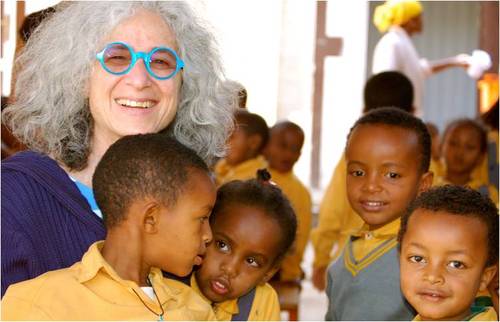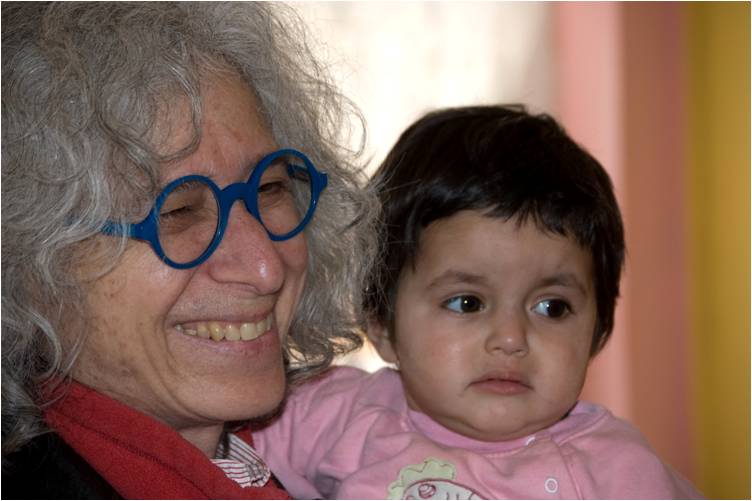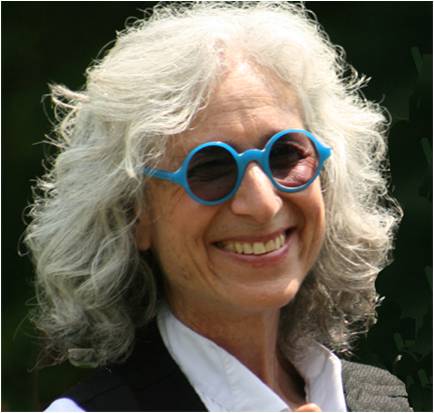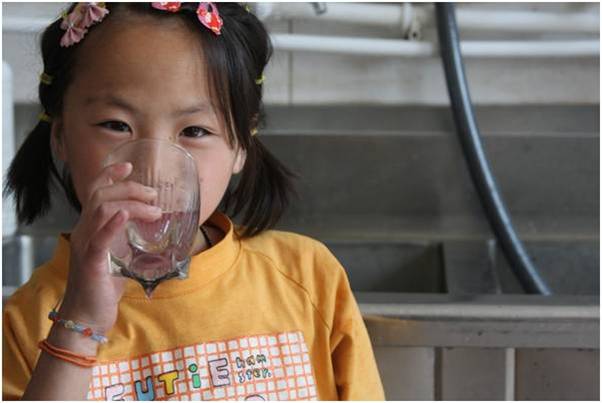Dr. Jane Aronson, founder and CEO of Worldwide Orphans Foundation (WWO), has issued a bold response today to a recent article on child trafficking. Jane, an internationally-renowned pediatrician and child advocate who I have profiled here, urges the U.S. and international community to take "aggressive action" to attack trafficking by tackling its root cause: extreme poverty.
 I profiled Dr. Jane Aronson in "Orphan Doctor" Dedicated to Tomorrow's Thought Leaders.
I profiled Dr. Jane Aronson in "Orphan Doctor" Dedicated to Tomorrow's Thought Leaders.
Jane's response to the article "The Baby Business" released in the Summer 2010 issue of Democracy Journal. The article, written by Brandeis University's Schuster Institute for Investigative Journalism associate director and senior researcher E.J. Graff, recommends tightening policies and practices by the U.S. and other governments to stop child trafficking in international adoption.
Responses to the article from leading experts were posted June 30 on the Schuster Institute's website.
"Everyone is opposed to baby/child snatching, selling or trafficking," asserted Jane in her response. "When it occurs, the cause can always be traced to extreme poverty on the one hand and corruption and greed on the other hand." Jane was recognized as one of Glamour Magazine's "Women of the Year" 2009.
 Dr. Jane Aronson, founder and CEO of Worldwide Orphans Foundation, is an internationally-renowned pediatrician and child advocate.
Dr. Jane Aronson, founder and CEO of Worldwide Orphans Foundation, is an internationally-renowned pediatrician and child advocate.
Dr. Aronson said trafficking is only a symptom of a "much deeper and more complex malady" and called on the international community to make a concerted effort to understand and focus on the underlying issues of the practice. The true crisis, she writes is the international orphan crisis.
UNICEF estimates that there are 163 million children under the age of 18 who have lost at least one parent, and 18.5 million children who have lost both parents.
While acknowledging that some experts are in disagreement over the definition of what constitutes an orphan, Jane noted that globally there are millions of biological orphans (children whose parents have died) and social orphans (children who have no family, extended family, or community to sufficiently care for them). In my own organization, Orphans International Worldwide (OIWW), we refer to theses as "economic orphans."
"As for how many, I am, frankly, impatient with this question," said Jane. "There are millions - probably hundreds of millions - of children living in this world without parental or familial care. Isn't that enough to know?"
 Dr. Jane Aronson responds to article The Baby Business.
Dr. Jane Aronson responds to article The Baby Business.
WWO calls on the international community, the Hague Convention, and U.S. and the world's industrialized nations to focus on enacting two overarching policy goals to address the root causes of trafficking and the orphan crisis:
Ensure that every country has in place the infrastructure to support families and communities. Infrastructure support should include child-welfare systems, social services, medical, mental health, and psychosocial services, and universal, free education for all children.
Jane said a commitment to investing in such efforts, instead of the creation of increasingly punitive and bureaucratic regulations and oversight of international adoption, would address the underlying reasons of why parents give up their children for adoption and provides support to keep families intact.
"Without such support services, we are effectually ensuring that families will be torn apart by poverty, illness, ignorance and fear, and that children will be abandoned to orphanages or a life on the streets or in brothels," said Jane. "This would be the case even if there were no child-trafficking and no international adoption."
Provide services for children who are currently living in institutions. Since its inception in 1997, WWO programming has benefited orphaned children living in institutions as well children and local residents in impoverished communities. WWO's long-term, integrated programming includes physical and mental health; education, including an innovative global arts program; camp; and early intervention programs.
Her response also cited effective assistance programs implemented by WWO around the world that support families and communities, and integrate children from orphanages into a community setting, thereby de-stigmatizing orphans and integrating them into their communities, "which is where they belong."
To read the full response, click here. To read other expert responses, see Brandeis University website.
The mission of Jane's Worldwide Orphans Foundation is to transform the lives of orphaned children around the world by addressing their unique needs through medical, developmental, psychosocial, and educational programs.
I have known Jane for several years. We both have adopted teenage sons and we have lunch on occasion to catch up. In The Stewardship Report (JLSR), she is listed as one of the Top Ten New Yorkers, and she ranks a 99 on The Luce Index of Global Leaders.
More or Orphan Care and Child Trafficking by Jim Luce:
Brilliant Film Premiers Monday in NYC, Offering Solution to Global Child Exploitation
Orphans International Worldwide: Embracing Family Care For Orphans
Doffie Rotter of CT Builds a Library - For Orphans - In Kabul, Afghanistan
Goldman Sachs Helps 10,000 Women, Including Orphanage Director Andeisha Farid
How Can We Help Orphans in Kenya - With 2.4 Million of Them?
Live from Leogane: College Prep Leadership Training Begins for Orphan Mentors

Clean Water for China's Orphanages
New Jersey 20-Year-Old Builds Orphanage in Nepal
Live from Leogane: Orphans International Partners with Haitian School Founded by Orphan
"Orphan Doctor" Dedicated to Tomorrow's Thought Leaders
Orphans in Afghanistan Thrive Due To CharityHelp International
